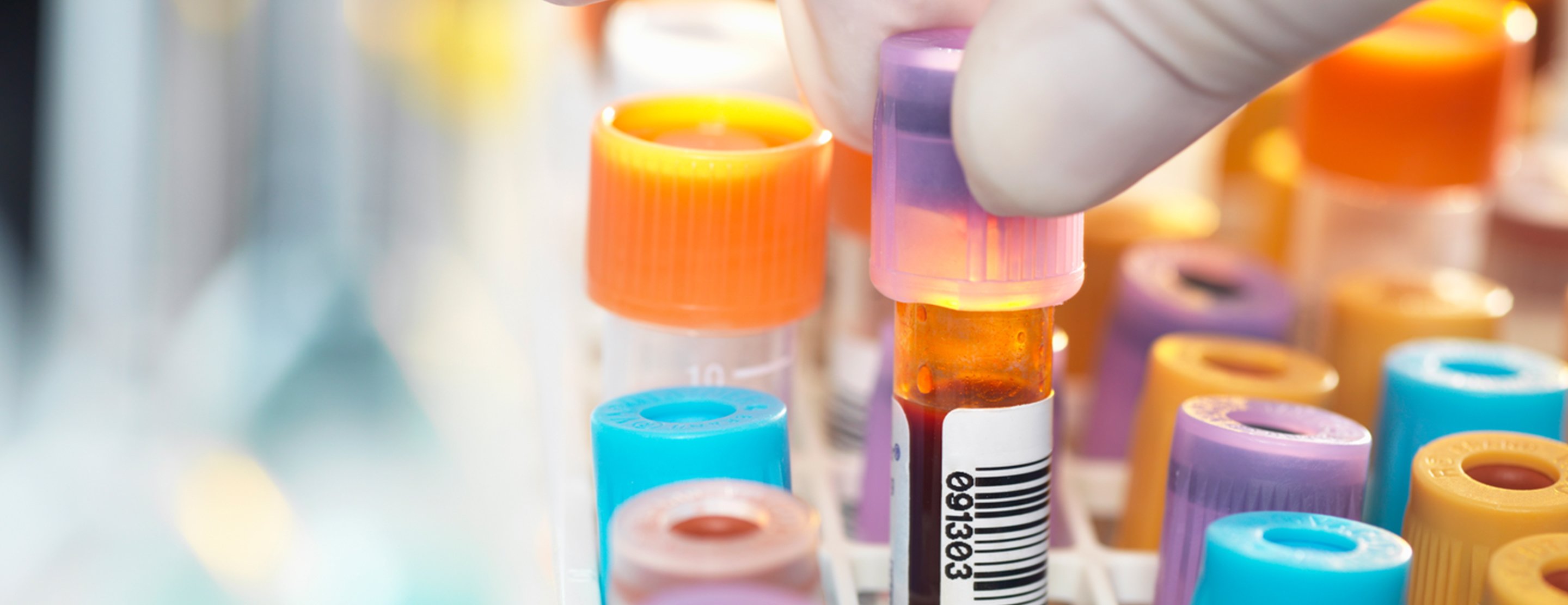
VDRL test
Definition
The VDRL test is a screening test for
Alternative Names
Venereal disease research laboratory test; Syphilis - VDRL
How the Test is Performed
The test is most often done using a blood sample. It can also be done using a sample of
A
How the Test will Feel
When the needle is inserted to draw blood, some people may feel moderate pain. Others feel only a prick or stinging. Afterward, there may be some throbbing or a slight bruise. This soon goes away.
Why the Test is Performed
This test is used to screen for syphilis. The bacteria that cause syphilis is called Treponema pallidum.
Your health care provider may order this test if you have signs and symptoms of a sexually transmitted illness (STI).
Syphilis screening is a routine part of prenatal care during pregnancy.
This test is similar to the
Normal Results
A negative test is normal. It means that no antibodies to syphilis have been seen in your blood sample.
The screening test is most likely to be positive in the secondary and latent stages of syphilis. This test may give a false-negative result during early- and late-stage syphilis. This test must be confirmed with another blood test to make the diagnosis of syphilis.
Normal value ranges may vary slightly among different laboratories. Some labs use different measurements or test different samples. Talk to your provider about the meaning of your specific test results.
What Abnormal Results Mean
A positive test result means you may have syphilis. If the test is positive, the next step is to confirm the results with an
The VDRL test's ability to detect syphilis depends on the stage of the disease. The test's sensitivity to detect syphilis nears 100% during the secondary and latent stages; it is less sensitive during the earlier and later stages.
Some conditions may cause a false-positive test, including:
HIV/AIDS Lyme disease - Certain types of pneumonia
Malaria Systemic lupus erythematosus
The body does not always produce antibodies specifically in response to the syphilis bacteria, so this test is not always accurate.
Risks
There is little risk involved with having your blood taken. Veins and arteries vary in size from one person to another and from one side of the body to the other. Taking blood from some people may be more difficult than from others.
Other risks associated with having blood drawn are slight, but may include:
- Excessive bleeding
- Fainting or feeling lightheaded
- Multiple punctures to locate veins
- Hematoma (blood accumulating under the skin)
- Infection (a slight risk any time the skin is broken)
References
Radolf JD, Tramont EC, Salazar JC. Syphilis (Treponema pallidum). In: Bennett JE, Dolin R, Blaser MJ, eds. Mandell, Douglas, and Bennett's Principles and Practice of Infectious Diseases. 9th ed. Philadelphia, PA: Elsevier; 2020:chap 237.
US Preventive Services Task Force; Mangione CM, Barry MJ, et al. Screening for syphilis infection in nonpregnant adolescents and adults: US Preventive Services Task Force Reaffirmation Recommendation Statement. JAMA. 2022;328(12):1243-1249. PMID: 36166020
Review Date: 08/26/2023
The information provided herein should not be used during any medical emergency or for the diagnosis or treatment of any medical condition. A licensed physician should be consulted for diagnosis and treatment of any and all medical conditions. Call 911 for all medical emergencies. Links to other sites are provided for information only -- they do not constitute endorsements of those other sites. Copyright ©2019 A.D.A.M., Inc., as modified by University of California San Francisco. Any duplication or distribution of the information contained herein is strictly prohibited.
Information developed by A.D.A.M., Inc. regarding tests and test results may not directly correspond with information provided by UCSF Health. Please discuss with your doctor any questions or concerns you may have.





